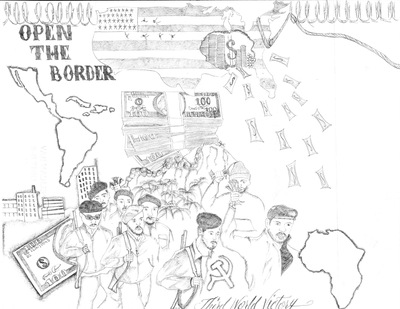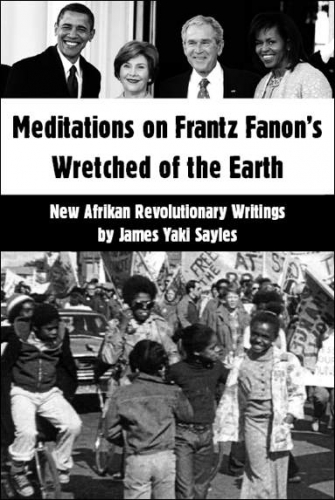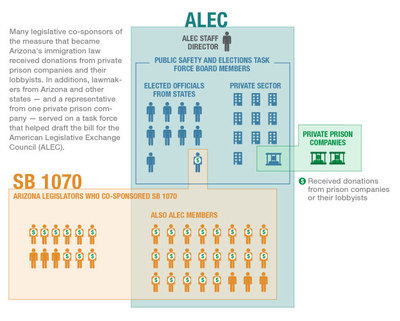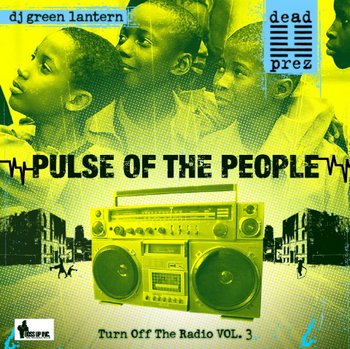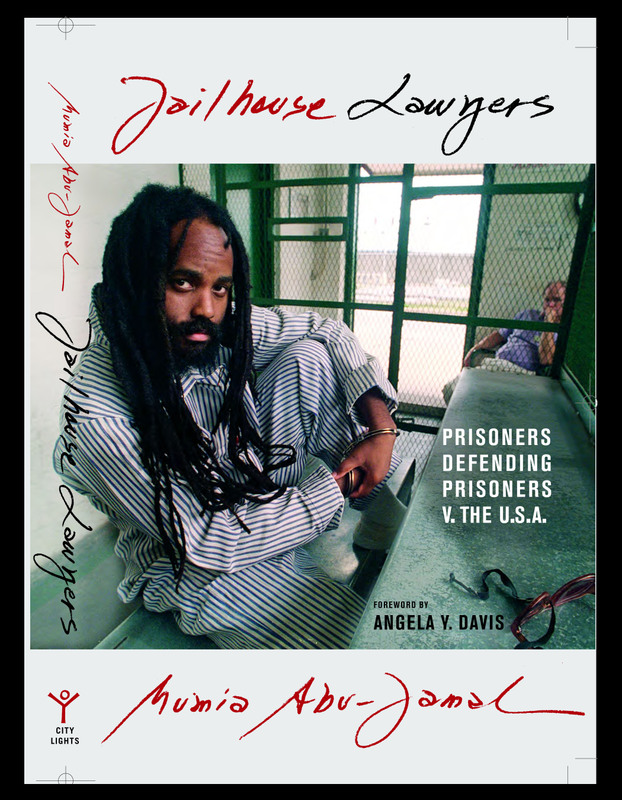Revolution #183 : Special Issue on Prisons and Prisoners in the
U.S.
November 15, 2009
Revolutionary Communist Party, USA
Calling me an African-American
like everything is fair again,
shit
Devil, you got to get the shit right, I’m Black
Blacker than
a trillion midnights
–Ice Cube from the song When Will They
Shoot?
Many years ago MIM had disregarded the so-called “Revolutionary
Communist Party, USA” (rcp=u$a) after it repeatedly served as a
mouthpiece for the CIA in relation to People’s War in Peru, the invasion
of Iraq, and supporting regime change in Iran.(1) Our predecessors had
spent decades drawing sharp lines between the Maoist line and rcp=u$a’s
revisionism. In recent years, Monkey Smashes Heaven has continuously
exposed the rcp=u$a’s phony Maoism. To date we have not spent too much
time on the subject except in some discussions of Iran and a high level
document entitled
“Maoism
Around Us” that was not printed in Under Lock & Key. We
believed there was no reason to prioritize doing much more when so much
was already out there on the subject that we could point to.
However, the fact remains that most of our readers do not have access to
the internet, and therefore will only be aware of this longstanding
battle against revisionism if they have been reading MIM Notes
or MIM Theory for some time. This month the rcp=u$a published
an issue of their newspaper dedicated to the topic of u.$. prisons. This
caught our eye, and reiterated the need for MIM(Prisons) to continue to
draw the line between Maoism and revisionism.
Many comrades write in praising the virtues of Maoism and we take this
as a sign that we are doing something right in connecting the struggles
of the oppressed in this country to an ever developing proletarian
ideology. But we must be real, only a handful of our readers are
seriously grappling with the questions facing Maoism today. And those
that cannot distinguish Maoism from the right opportunism of groups like
the rcp=u$a have not yet grasped it.(2) So let us begin.
“African Americans”
Did they say “African Americans”? Following the Black Power movement of
the 60’s there have been debates among revolutionaries between the terms
Black Nation and New Afrikan Nation. But the rcp=u$a is still writing
about “African Americans.”
What’s wrong with this terminology? Well, nothing really if you believe
that Black people are amerikans as rcp=u$a does. Some have suggested the
term African Amerikan for our enemies of African descent; another term
for Uncle Toms. You see, to Maoists, amerikans are oppressors. To be
amerikan is to be the enemy of the proletariat and the struggle of all
oppressed people. Rcp=u$a in contrast calls for the leadership of the
multinational labor aristocracy to lead the revolution in the u.$.
We must acknowledge that the rcp=u$a came out in support of (actually it
was more like giving permission to) an independent Black state in their
Draft Program. They did so, while maintaining that the “other” oppressed
nations in the u.$. must be part of their “multinational
proletariat.”(3) In other words, they were offering a special
neo-colonial deal to the Black nation.
One letter writer in this issue addresses the rcp=u$a’s predecessor, the
Revolutionary Union, in their handling of the question of the Black
Nation:
From the beginning, the RU’s scientific attitude impressed me. The
RU’s analysis of the Black national question stood out from that of
other organizations. My friend and I had read Lenin’s and Stalin’s
writings on the national question, and like many people in the movement
at the time, we were pretty sure that Black people in the U.S. were a
nation. However, we didn’t have a very deep understanding. The lines of
groups like the Black Workers Congress and the Communist League either
proceeded from the point of view of the Black nation itself rather than
from the international proletariat, or were bizarre attempts to shoehorn
the Black national question into Stalin’s definition of a nation with
little or no “concrete analysis of concrete conditions.” The RU came at
this question scientifically. Guided by the principles of
Marxism-Leninism-Mao Tsetung Thought, it analyzed the history of Black
people in the U.S. from slavery, through Reconstruction, and on through
the great migration to the cities in the 20th century, and developed not
only a scientific explanation of this question, but a program for the
revolutionary movement and for the future socialist society.”
We quote at length here so as to capture the full content of the
writer’s point. She writes in typical rcp=u$a style, hyping up the
“analysis” and “science” without actually giving you an analysis. She
implies criticisms of Stalin, but offers no explanation of the
alternative.
On this topic, in their title article rcp=u$a writes:
“The concept of the targeting of Black people and Native Americans as a
‘pariah class,’ dating back to the early days of the U.S., and the
overall way in which white supremacy has served to blunt
class-consciousness in the U.S. since then, has been drawn on and
further developed by Bob Avakian in the important work, Communism and
Jeffersonian Democracy.”
They pick up the tactics of the white communist movement dating back to
at least the 1930’s of talking hard about the special oppression of
Black people, while pulling them away from developing an independent
movement for self-determination. Maoists have long upheld the thesis
developed in the book Settlers: The Mythology of the White
Proletariat that there is no progressive class-consciousness among
amerikans.
Letters from Prisoners
The rcp=u$a prints a number of letters from prisoners and former
prisoners in this issue. They have a disclaimer saying that the views in
the letters are not those of Revolution, yet fail to criticize
anything in them. This is a textbook example of rcp=u$a liberalism in
practice right in their so-called Maoist newspaper that is supposedly
providing the great leadership of Bob Avakian that we all need in order
to get free. They regularly use the “masses” to say stuff that they
don’t want to take responsibility for.
One example of this is the prisoner who mentions, “The so called ‘Treaty
of Guadalupe Hidalgo’ that called for the theft of half of Mexican
land.” As referenced above, the rcp=u$a has refused to acknowledge the
right of Mexicans and their descendants to independence in Aztlán. But
they like to print stuff like this to give the impression that they do
in order to lure revolutionary nationalists into their ranks.
Rcp=u$a gives lip-service to the principal contradiction under
imperialism being between nations, but their revisionism is exposed in
their applications. Another example is plain as day in a discussion of
Islam:
“When I first tried to understand what Bob Avakian was talking about
with the two outmoded ideologies and systems, Islamic Fundamentalism and
Imperialism, I said”Damn!” this is something. And Islamic
Fundamentalism, I really didn’t understand what that was until I started
reading Revolution. The oppression of women, backward ideas,
fighting to go back not forward, reading what was in the paper really
helped me. This is not a national liberation struggle or something good.
It’s not part of any solution for humanity. And, imperialism is not only
no better, it’s even worse. We need to put communism and real revolution
on the map. This is something way different from Imperialism and Islamic
Fundamentalism. Where are you going to find out about this, not in the
Daily News or the New York Times, or these other movement newspapers.
People, and not just people locked up, need Revolution and
Avakian’s leadership. I felt I can explain it to people. It’s clearer
now.”
Uh, what? Actually, The New York Times is all over this shit
painting Islam as a threat to feminism everywhere. Where are you going
to find out about this? How about from Condoleeza Rices’ speeches when
she was head of the State Department? They were given at the same time
that the rcp=u$a was pushing the same line of woman’s liberation through
regime change in Iran by organizing marches and rallies across the u.$.
Or you could go to frontpagemag.com and read fascist David Horowitz who
fought it out with Bob Avakian over who was going to control the
discussion of “Islamo-Fascism.” Horowitz has an out for using this term,
he doesn’t claim Maoism so he can define fascism however he likes. As
Maoists, MIM agreed with Dimitrov that fascism is “the open terroristic
dictatorship of the most reactionary, most chauvinistic, and the most
imperialist elements of finance capital.” There are no imperialist
Muslim countries, thus, no fascist Muslim countries.
As mentioned above, not all of our readers get Maoism right, but we
don’t print their letters uncorrected. One letter printed in
Revolution #183 claims that after reading the newspaper for
awhile, “I began to see that this capitalist-imperialist system is
fundamentally based on the exploitation and oppression of the vast
majority of humanity at the hands of the few within the ruling class who
own and control the means of production.” Not surprisingly, readers of
Revolution come away with the white nationalist dogma that in
the u.$. we are all united against the handful of rich who run the
world, and rcp=u$a concurs.
The same writer stressed that the fight for abortion rights are vital.
An accompanying article in this issue on the Stupak-Pitts Amendment
reads: “This devastating development has shocked and angered many who
put their hopes in the Obama presidency to bring change from years of
war, repression and Christian fundamentalist onslaught and who now feel
thrown under the bus instead.” Thrown under the bus by whom, RCP? If
anyone was deceived, it was by the so-called Maoist party that
campaigned to get Obama elected to combat the rise of the bogeyman of
“Christian Fascism!”
The gender aristocracy rallying to protect their rights to sexual
pleasure and promiscuity is not exactly a battle for the international
proletariat. But right opportunism says to let the gender aristocracy
set our gender line so that we can be more popular. This approach to
gender was so disgustingly obvious in rcp=u$a’s approach to
homosexuality. As long as gay rights was a minority issue they promoted
homophobic literature targeting queers for their sexuality while
promoting sexual liberalism for heterosexuals. It wasn’t until after the
issue began to strike a popular chord, and discrimination against gays
became unacceptable that rcp=u$a followed suit. Nice “vanguard.”
Back in the day, MIM promoted the
sterilization
of all men in order to eliminate abortion while avoiding the obvious
campaign of the anti-abortion movement to control the sexuality of
wimmin. While rcp=u$a debated with the Christian right about how they
like their wimmin (liberated vs. barefoot and pregnant), MIM took a shot
at male supremacy. More importantly today, the pro-choice movement has
dovetailed nicely with the pro-war movement targeting countries that
oppose abortion and sexual liberalism. But rcp=u$a has harped against
Iran for years, promoting the overthrow of the anti-amerikan government
there, so this is not a contradiction for them.
One more interesting note on the gender question: The rcp=u$a article
reads: “If the Senate passes a health care bill that effectively
prohibits abortion, women will be cast back to the days when only the
very rich could determine the course of the rest of their lives.” In
other words, wimmin would be coerced into having sex that leads to
pregnancy. MIM has long said that all sex is rape, and this is probably
the closest the sexual liberals at rcp=u$a have come to recognizing
this. The problem is that they deny the existence of the gender
aristocracy and the reproductive health benefits that it receives by
virtue of living in the First World. Even in cases of unplanned sex,
birth control is accessible after the fact without abortion. So the
rcp=u$a rhetoric is just another example of their exaggerated
demagoguery.
A final letter writer catches them up with a direct quote from “The
Revolution We Need… The Leadership We Have,” another self-congratulatory
rallying cry from the rcp=u$a. “For a revolution, there must be a revolutionary people among all
sections of society but with its deepest base among those who catch hell
every day under this system.” No, the revolutionary people are found
among the exploited and oppressed and we don’t need the exploiters and
oppressors to join us before we can be successful.
Whether Barack Obama or Bob Avakian, persynality cults have no
progressive role to play in the First World today. The oppressed need to
move beyond trying to pick the right candidate to vote for.
Amerikans Need to be Imprisoned
Only he is a Marxist who extends the recognition of the
class struggle to the recognition of the dictatorship of the
proletariat. This is what constitutes the most profound
difference between the Marxist and the ordinary petty (as well as big)
bourgeois.
- from “Lenin on the Struggle Against Revisionism”, p.31
… right up to the very wholesale deportation or internment of the most
dangerous and stubborn exploiters - putting them under strict
surveillance in order to combat inevitable attempts to resist and to
restore capitalist slavery - only such measures can ensure the real
subordination of the whole class of exploiters.
-from “Lenin on the
Struggle Against Revisionism”, p.41
Regarding our lines on prisons in general, the rcp=u$a supports a line
that political prisoners make up a small portion of the population and
focus on the cases of Mumia Abu-Jamal and Leonard Peltier as examples.
MIM’s line has been that all prisoners are political. In other words,
the system is set up to control certain populations, while the real
criminals that are murdering people en masse make fat paychecks and live
free. This issue of Revolution on prisons by a self-proclaimed
communist group leaves out what their approach to prisons would be (they
mention the need for an “earth-shaking revolution”). They sidestep the
two line struggle within the Maoist movement between mass re-education
camps in the First World and a dispersal method of sending the former
exploiters to the global countryside as they did on a smaller scale
within China. This discussion would be too scary for their populist
amerikan readership.
As revolution will come to the heart of imperialism last, MIM has long
discussed the Joint Dictatorship of the Proletariat of the Oppressed
Nations over the oppressor nations as we work to break down the
backwards ways of our imperialist past. The rcp=u$a, like all white
nationalist so-called communists, sees no reason for such a
dictatorship.
In the system that communists are fighting for, much of the First World
will face potential prison time in order to right the centuries of
injustices that this system is built on. Prisons will serve to develop
productive members of a society that serves people’s need, rather than
as a warehouse of torture and wasted lives.
Covering for the bourgeoisie
Practice has shown that the active people in the working-class movement
who adhere to the opportunist trend are better defenders of the
bourgeoisie, than the bourgeoisie itself. Without their leadership of
the workers, the bourgeoisie could not have remained in power.
- from
“Lenin on the Struggle Against Revisionism”, p.74
While we have no exploited working-class movement in the imperialist
countries to speak of, this quote from Lenin still rings true in terms
of the usefulness of what he calls “bourgeois socialism” in neutralizing
those who want an end to oppression. During the Bush Jr. regime the
rcp=u$a were constantly crying that “christian fascism” was taking over
the country. They led the “World Can’t Wait to Throw Out the Bush
Regime” campaign, which was the radical wing of a many year long
campaign to get Obama into office. Rcp=u$a of course would never openly
support Obama as that would totally discredit them as communists. But
they do openly support the 90% of the u.$. population that they claim
have an interest in socialism.
As the radical branch of the Democrats, rcp=u$a works to unite these
same people for their own interests. When they see their interests in a
neo-colonial u.$. president who will expand the occupation and slaughter
in Central Asia for amerikan economic interests, the rcp=u$a balks and
pretends that the people are confused. This is all part of their game to
maintain their radical facade to continue to be an effective recruiter
of youth for the Democratic Party.
In 1902, VI Lenin published “What is to be Done?”, which set the
theoretical stage for the split of the Russian Social-Democratic Labor
Party into the Bolsheviks and the Mensheviks. The Bolsheviks were the
communists led by Lenin who eventually led the successful revolution of
1917. In “What is to be Done?”, Lenin opens up by criticizing one of the
Menshevik tendencies for right opportunism and economism.(4) He
describes how he had to expand the essay to deal with all aspects of a
group that wasn’t even speaking the same language and often playing both
sides of an issue. This is a great description of the rcp=u$a’s approach
to theory. Of course, rcp=u$a economism takes on a whole new meaning
among the exploiter nation in this country, where economic demands
actually mean increased exploitation of the proletariat.
History of Struggle vs. Revisionism
While Maoists effectively split from Avakian’s revisionism in the
1980’s, our conditions leave us at a disadvantage compared to Lenin in
that many still see the rcp=u$a as representing Maoism because their
populist politics gives them a greater public face in many areas (inside
u.$. prisons is one exception to this).
Despite volumes of criticisms of the rcp=u$a’s revisionism from the
left, they have publicly responded to the Maoist Internationalist
Movement only once. It was in 1994 to respond to a paper presented by
MIM at a conference, “it argued that white workers as an economic-social
grouping in the United States are not exploited, are part of the process
of exploitation of the workers of the Third World and have no
revolutionary interests. This is a wrong and counterrevolutionary idea.”
Clear as day, right? Too bad, the rcp=u$a back tracks on this line and
implies certain things about the white nation more in line with MIM when
it is dealing with the oppressed. The RCP’s fear of Maoism comes through
in their discussion of supermax prisons where they cite vague
statistics, but fail to reference the most thoroughly documented list of
control units on the internet because it is produced by comrades
affiliated with MIM(Prisons).
Combating revisionism is usually a frustrating task that eats up time
that could be spent building the movement. While we hope to not have to
spend much time on this particular group in the near future, we know
that the struggle against revisionism is continuous. And ultimately it
is one part of building a strong movement.
notes:
(1)
See
the archive of the Crypto-Trotskyists page from etext
(2) While
Lenin warned that there is no shortcut to identifying revisionism,
MonkeySmashesHeaven has a pretty good cheat sheet for our times. see:
Clues
to help you find out if someone is a revisionist
(3)
2001
MIM Congress. Resolution on the “Draft Programme of the ‘Revolutionary
Communist Party, USA’ May 2001”
(4) For a full discussion of
“right” and “left” errors see MIM Theory 5: A Diet for a Small Red
Planet.









